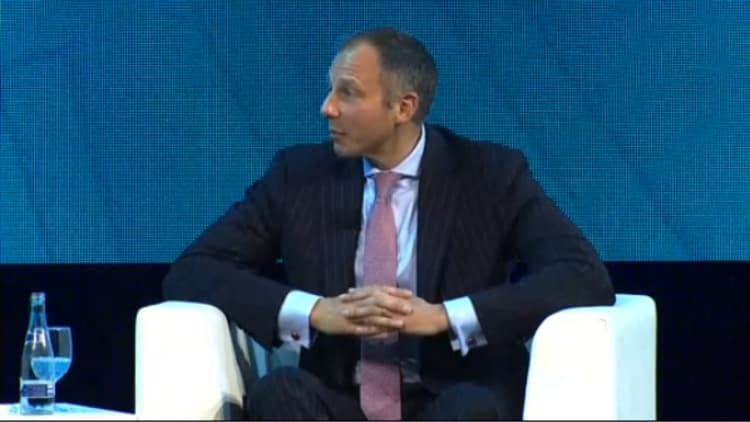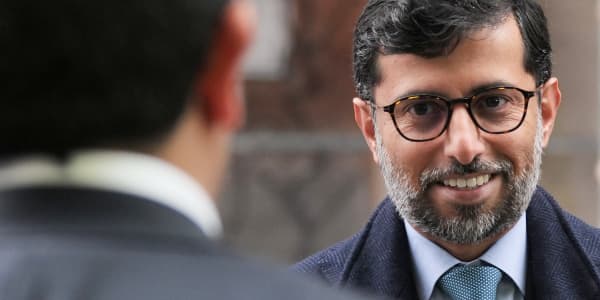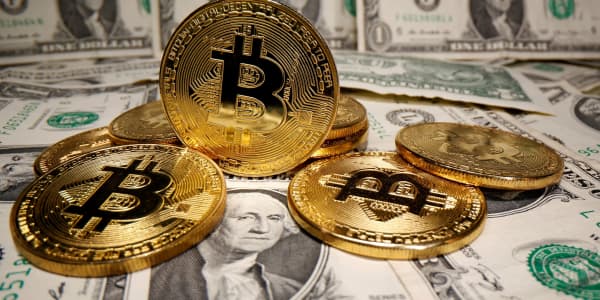
ABU DHABI, United Arab Emirates — A senior State Department official on Tuesday said current tensions between the U.S. and Iran are entirely within Iran's power to fix, speaking at a panel event on energy and geopolitics at the annual Abu Dhabi International Petroleum Exhibition & Conference (Adipec).
"The ball is in the Iranian regime's court, as it were," Frank Fannon, U.S. Assistant Secretary for the Bureau of Energy Resources at the State Department told CNBC's Hadley Gamble on stage. "The administration has been very clear on the conditions. They're encouraging talks, but there are certain conditions that have to be met. Fomenting proxy wars and creating instability in the region, that is not a way to come to the negotiation table."
The comments come as Iran steadily rolls back its commitments to the 2015 Iranian nuclear deal, 16 months after President Donald Trump withdrew from the multilateral agreement and imposed crippling economic sanctions on the Islamic Republic. A report by the International Atomic Energy Agency revealed on Monday that Iran is enriching uranium at its heavily fortified underground Fordow site and speeding up enrichment generally.
The Iranians say they will undo the steps they've taken — steps that bring them closer to nuclear bomb-making capability — if all parties to the deal abide by it and sanctions on the country are lifted.
In a press conference on Tuesday, Fannon called the Iranian regime a "criminal enterprise" for its backing of regional paramilitary and terrorist groups like Hezbollah and Hamas, its testing of ballistic missiles and its support for the Syrian regime of Bashar al Assad.
Tehran argues it was asked by the Assad government to intervene in Syria, and describes its development of ballistic missiles as exercising its sovereign right to self-defense.
Critics of the administration argue that Trump's policy — that of maximum pressure through sanctions — has not been conducive to rapprochement, and they question the clarity of the administration's ultimate goal with regard to Iran. Some suspect the White House wants regime change, which U.S. officials deny, saying they're pursuing an end to the Iranian regime's "malign behavior."
Iranian Supreme Leader Ayatollah Ali Khamenei said in September that Iran would "never" hold talks with the U.S. at any level, and that Washington's sanctioning of the country's leaders closed the door on any chance at diplomacy.
One former senior Obama administration official, who did not want to be named, told CNBC during the Abu Dhabi conference that a negotiated deal with the Iranians was entirely possible and in Tehran's interest, but that the Iranians had to be able to do it "without looking like Trump's b----." Iranians and country analysts often note the country's strong sense of pride, casting doubt on any notion that the regime's leaders would be willing to come to the table from a position of weakness.
The past several months have seen attacks on six commercial tankers in the Persian Gulf, the shooting down of an American drone, seizures of oil tankers and a major attack on Saudi Arabia's oil infrastructure, all of which Washington has blamed on the Iranians. Tehran denies the attack charges, while defending the tanker seizures which they say resulted from maritime violations by the tankers in question. The tankers have since been released.
Reports show that the maximum pressure policy has slashed the Iranian government's revenue and weakened its ability to fund Hezbollah, the Lebanese political and militant group designated by the U.S. as a terrorist organization which is active in conflict zones around the region.
Fannon highlighted the fact that U.S. sanctions have wiped two million barrels per day of Iranian oil production off the market. Inflation in Iran is around 50%, its currency has spiraled and unemployment is high. The International Monetary Fund expects Iran's economy to contract by 9.5% this year.
Still, many regional experts don't see any signs of change in the regime's behavior itself, its intervention in regional conflicts or its weapons development. It remains militarily engaged in Syria, continues to test ballistic missiles, and its leaders have expressed their intent to continue enriching uranium and breaching elements of the nuclear deal until the U.S. makes the first concession on sanctions.





